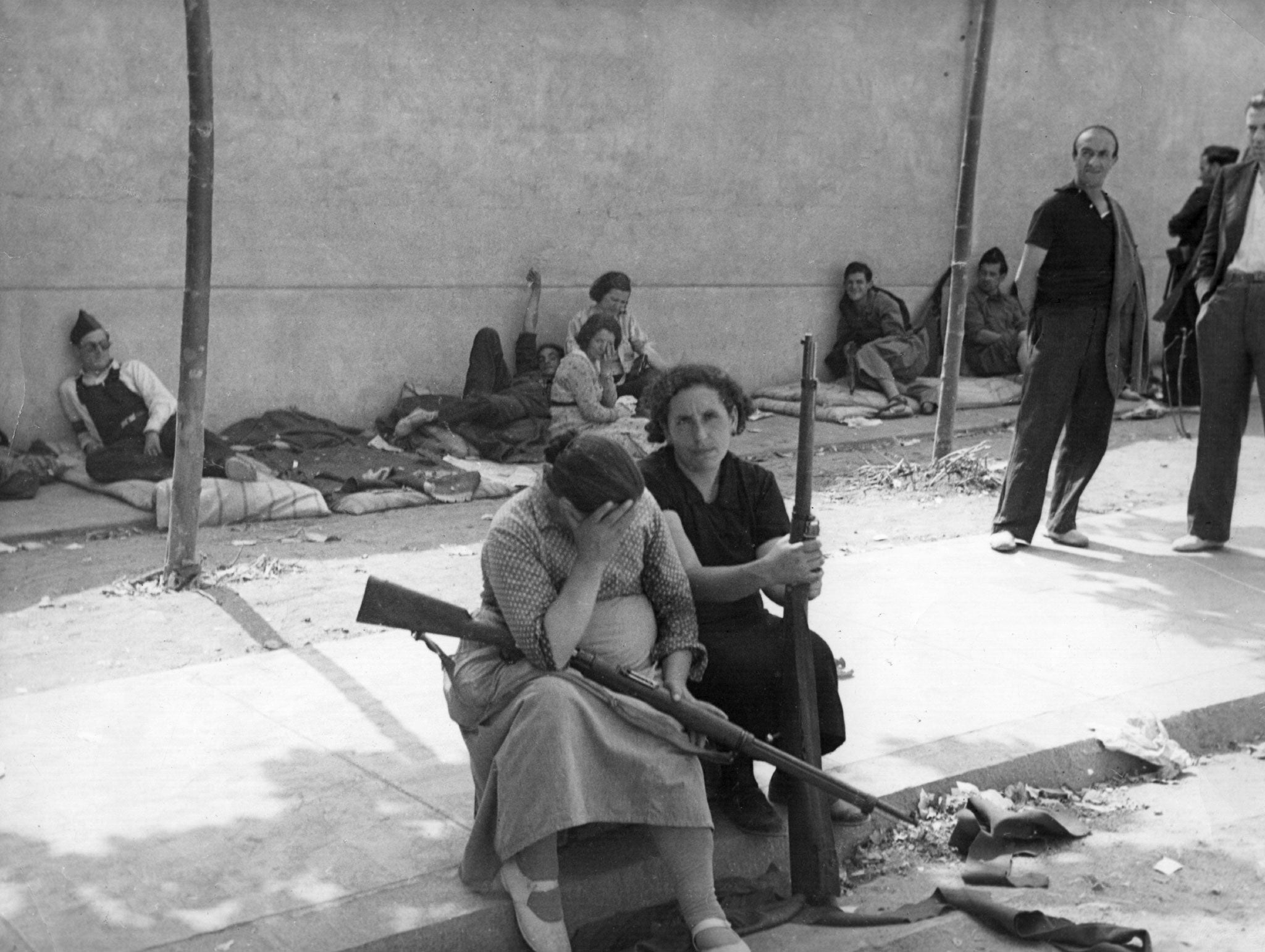Franco's Crypt: Spanish Culture and Memory since 1936 by Jeremy Treglown, book review
Flawed bid to prove the artistic worth of Franco's Spain

Your support helps us to tell the story
From reproductive rights to climate change to Big Tech, The Independent is on the ground when the story is developing. Whether it's investigating the financials of Elon Musk's pro-Trump PAC or producing our latest documentary, 'The A Word', which shines a light on the American women fighting for reproductive rights, we know how important it is to parse out the facts from the messaging.
At such a critical moment in US history, we need reporters on the ground. Your donation allows us to keep sending journalists to speak to both sides of the story.
The Independent is trusted by Americans across the entire political spectrum. And unlike many other quality news outlets, we choose not to lock Americans out of our reporting and analysis with paywalls. We believe quality journalism should be available to everyone, paid for by those who can afford it.
Your support makes all the difference.Given the fashion for Spanish Civil War books and films that make heroes of the Republican side, it would be tempting to think Franco had no allies. He did, of course. Jeremy Treglown sets off in search of them, and they prove easy to find.
He visits the Valley of the Fallen, the giant Civil War memorial south of Madrid, on the anniversary of Franco's death, and encounters a motley crew of Falangists, Francoists and racist yobs. Treglown does a good job describing the menace in the air. His account of a visit to a dig for unmarked graves is also deftly told: he allows the stories of those looking for loved ones to speak for themselves, while wondering whether this is really the best way to make peace with the past.
He travels to renamed streets and town squares stripped of their Franco statues, preoccupied that one set of "triumphalist, one-sided war memorials" is being swapped for another. But he has a tendency to read revisionism in all he sees: he criticises the Cartagena air-raid shelter for housing a display of peace-themed drawings by local children, a "positive" spin put on a place of human conflict.
In the second half of the book, we leave familiar travelogue territory to examine the country's artistic output under Franco. Treglown's premise is that not all good Spanish art of the era was produced in exile: that there were first-rate artists living in Spain who managed to navigate the censors, even that there were artists of merit on Franco's side. Treglown rightly suggests that they deserve better attention, but again he is blinded by the strength of his convictions.
"If you ask Anglophone people what book or film they most associate with the Spanish Civil war, the answer is usually For Whom the Bell Tolls or Casablanca or Homage to Catalonia," he says. Well sure, but that's not really because of a conspiracy against Spanish works.
On the other hand, when drawing attention to four visual artists, Eduardo Chillida, Antoni Tàpies, Manolo Millares and Antonio Saura, he states: "All are internationally renowned and all lived and worked in Franco's Spain." The statement is supposed to emphasise the calibre of the artists, but it also shows that they did gain recognition. Is Treglown saying such artists are ignored in Spain? These four are not.
There are other faults – the lack of engagement with regional cultural memory, particularly Catalan and Basque, is glaring – but the book's main flaw is its obsession with proving that "clearly any notion that Franco's Spain was an artistic desert is the opposite of the truth".
Is anyone seriously saying it was? If so, it's an obviously lazy argument and not worth Treglown getting so fired up about. Besides, in his eagerness to dispel "the still-widespread idea that Francoist censorship prevented any form of intellectual or creative opposition," he ends up putting undue emphasis on the word "any".
Franco's Crypt feels ultimately like an academic counter-argument, and it is probably destined for life as a research tool rather than as a general interest book for Spain lovers.
Jethro Soutar's translation of 'Hotel Brasil' by Frei Betto is published by Bitter Lemon Press
Join our commenting forum
Join thought-provoking conversations, follow other Independent readers and see their replies
Comments